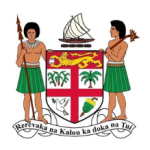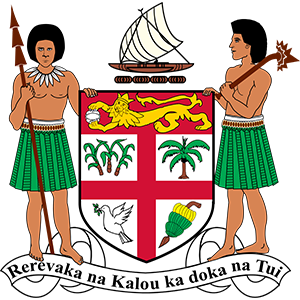
RATU SUKUNA DAY CELEBRATIONS CLOSING SPEECH- NASINU TOWN COUNCIL
June 4, 2025
Supreme Court Begins Hearing on Constitutional Reference Case
August 19, 2025Attorney-General, Honorable Siromi Turaga
MINISTERIAL STATEMENT ON THE
ICJ ADVISORY OPINION ON THE OBLIGATION OF STATES WITH RESPECT TO CLIMATE CHANGE DELIVERED ON 23 JULY 2025
Mr. Speaker,
- I rise today not just as the Attorney-General of the Republic of Fiji, but as a proud son of our nation—a son of the Pacific, who has walked through flood-stricken villages, heard the cries of displaced families, and seen firsthand the sorrow etched into the faces of those forced to abandon their vanua, due to the severe impacts of climate change.
- Speaker, as you are aware, the International Court of Justice (ICJ) delivered its long-anticipated Advisory Opinion on the Obligations of States with respect to Climate Change on 23 July 2025 – a historic moment of international justice and renewed hope.
- Mr Speaker, Fiji had the opportunity to make oral submissions to the ICJ on the Advisory Opinion on Climate Change on 4 December 2024, led by my predecessor Mr. Graham Leung and supported by former Ambassador Luke Daunivalu and senior officials from my office.
- Fiji’s legal submission was premised on three important legal grounds:
- the existential threat climate change poses to our survival;
- the clear legal obligations that States must uphold; and
- the grave consequences of failing to meet these duties.
- Fiji explained to the ICJ and the rest of the world, the harsh reality faced by our people because of the impacts of climate change — instances like –
- how the unbearable force of Tropical Cyclone Winston killed 44 of our people and wiped out a third of our GDP in just 36 hours;
- how the village of Vunidogoloa was relocated as a result of rising sea levels, with an additional 45 villages identified for future relocation due to similar climate-related threats;
- how the mother in Tailevu clings to her crying child during a stormy night; the farmer in Rakiraki who can no longer grow cassava in poisoned soil and the elder in Kadavu who no longer hears the chants from the church that once stood proudly by the shoreline;
- how our vanua is being swallowed by the rising seas, and how cultural heritage slips through our fingers like sand.
- Fiji also explained the irrefutable scientific evidence, pointing to the IPCC’s findings that industrialized States bear overwhelming responsibility for greenhouse gas emissions causing this crisis, the international law principles of preventing harm to others and the right of small island nations like ours to self-determination—the right to live in our lands, to maintain our culture, and to chart our own futures.
- Fiji further explained to the Court that the cascading consequences of climate change causing food and water insecurity, biodiversity loss, forced displacement are not only a crisis of survival, but a crisis of equity. Fiji contributes just 0.004% of global emissions, yet we pay the highest price.
- But even as we suffer, we lead. Fiji has passed the Climate Change Act 2021, established the Climate Relocation of Communities Trust Fund, and supported regional frameworks on maritime zones and climate mobility. We have taken action because we must. But the truth is—we cannot do this alone. Those who are most responsible must step up.
- Speaker, Fiji’s submission to the ICJ was both emotional and deeply principled. It was a defense not only of law but of life. It affirmed that our constitutional values—human rights, environmental protection, and justice—are being violated by the unchecked emissions of others. We presented irrefutable evidence: that anthropogenic emissions, mostly from industrialised countries, are causing irreversible harm. That specific States have failed to meet their obligations. And that this failure has real and painful consequences for people—our people.
- We relied on fundamental principles of international law, including the obligation to prevent transboundary harm and the right to self-determination—because for island nations, sovereignty is not just about territory. It is about dignity. It is about being able to pass down the land of our ancestors to the next generation.
- Speaker, the ICJ’s advisory opinion, issued on 23 July, is a powerful affirmation of our case. It affirmed what Fiji and our Pacific neighbours have been saying for years: that climate change is a matter of human rights, justice, and legal responsibility.
- In its opinion, the court clarified that climate change treaties impose binding obligations on states to protect our climate and environment from greenhouse gas emissions. The court also clarified that customary international law requires states to prevent significant environmental harm, with emphasis on due diligence and cooperation. Breaches of these obligations constitute internationally wrongful acts.
- The court further clarified that states have obligations under international human rights law to respect and ensure the effective enjoyment of human rights by taking necessary actions to protect the climate system and other aspects of the environment. As a result, responsible states must cease harmful practices, ensure non-repetition of violations, and provide reparations to affected states.
- The opinion applies to all states, establishing a duty to act responsibly. For Fiji and our Pacific neighbours, it provides a strong legal foundation to enhance climate action, support legal challenges, and shape the future of international climate law. It underscores that climate change involves human rights and legal responsibility, empowering us to demand accountability from high emitters.
- The opinion confirms that states have binding obligations under international law — not just under treaties like the Paris Agreement, but also under customary international law, international human rights law, and the Law of the Sea. That States have duties to reduce emissions, protect ecosystems, and safeguard human rights. And crucially—that failure to act can amount to internationally wrongful conduct.
- This is more than a legal judgment. It is a moral compass. It is validation. It is justice. It says to the single mother in Serua whose home was claimed by the sea: the world sees you. It says to the youth of Fiji who march in the streets, who speak out on social media, who sit under coconut trees wondering what their future holds: your voice matters. It says to every Pacific Islander who fears waking up to find their village gone: the law stands with you.
- Speaker, this ruling matters because it restores faith—in justice, in truth, in humanity. It says to powerful nations: your actions have consequences. Your failure to act is not neutral—it is unlawful. You are no longer shielded by distance or denial. The world is watching. And the law is speaking. It also makes clear that climate justice is not negotiable. It is not a matter of charity. It is a matter of duty.
- I want to acknowledge the youth of the University of the South Pacific, whose courage sparked this movement. The Government of Vanuatu, whose leadership was unwavering. And the 105 countries that stood with us. This is what solidarity looks like. This is what justice sounds like.
- With record-breaking participation—91 written submissions, 107 oral statements—this is the most engaged case in ICJ history. The tide is turning. And the Pacific helped turn it.
- Speaker, this is not the end. It is the beginning of something new—a new era of climate accountability. We call on all States, particularly high-emitting nations, to:
- immediately operationalise the Loss and Damage Fund;
- scale up adaptation support;
- accelerate emissions reductions; and
- recognise that justice for climate-affected communities can no longer be delayed.
- Fiji will continue to lead with integrity. We protect our oceans, and honour our ancestral lands. And we will raise our voice—firm, clear, and unrelenting—at COP30 and beyond.
- Speaker, this advisory opinion is not just a legal document. It is a lifeline. It is hope written in the language of justice. It is our ancestors whispering that their legacy will not be drowned. It is our children’s future knocking—and being answered.
- To the people of Fiji: your stories matter. Your pain has been heard. And your fight has not been in vain. To the world: the path is now clear. Let us walk it together, not tomorrow, but today.
Vinaka vakalevu, Mr. Speaker.





